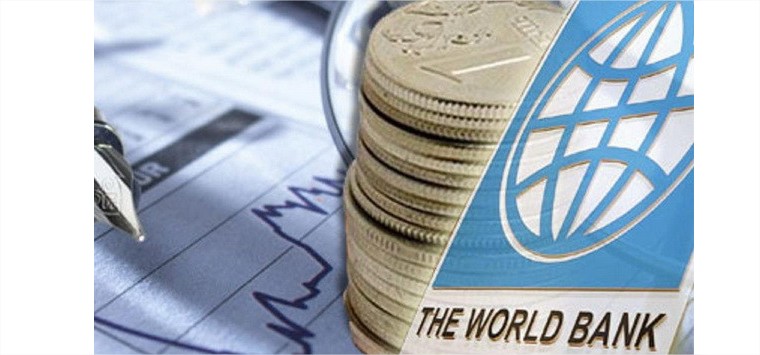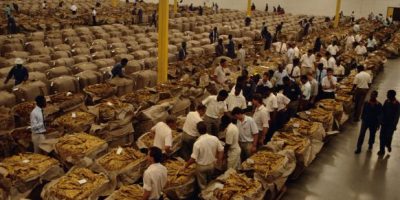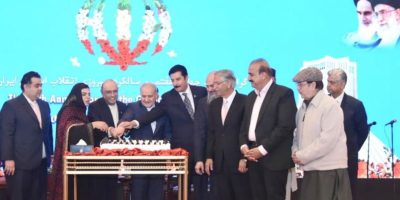World Bank provides over US$370 million to Central Asian countries to combat coronavirus

Tashkent, MAY 16 – – The World Bank has provided more than US$370 million to Central Asian countries to combat coronavirus (COVID-19). Funds were allocated as part of the global emergency response package, as well as reallocated from projects currently being implemented in these countries with the financial assistance of the World Bank.
“The World Bank has quickly mobilized funds to counter the COVID-19 pandemic. Together with the governments of Central Asian states, we are also reviewing our investment portfolio in the region for a total of US$9.7 billion to provide additional funds to strengthen health systems and mitigate the economic impact of COVID-19 for these countries,” said Lilia Burunchuk, Regional Director World Bank in Central Asia during an online briefing organized by the World Bank.
Assistance from the World Bank will enable a wide range of activities to increase the effectiveness of national health systems and primary health care, improve epidemiological monitoring and reporting, and train health workers interacting with infected patients.
The funds provided will also be used to procure important medical equipment, including test kits, laboratory reagents, equipment for intensive care units, as well as personal protective equipment for medical workers.
In addition, depending on the priorities of specific Central Asian countries, funding will allow their governments to expand programs to provide social protection to the most vulnerable segments of the population, establish a distance education system and solve other priorities as part of the mitigation of the pandemic.
“The global economy is experiencing an unprecedented crisis in connection with the COVID-19 pandemic. In fact, we are on the verge of the worst economic crisis since the Second World War,” said Ivaylo Izvorski, World Bank lead economist in Central Asia during an online briefing. “To mitigate the consequences of COVID-19, countries in the region need to act quickly, starting with planning a way out of the crisis and identifying clear measures and structural reforms to restore economic growth.”
As of 14 May 2020, the World Bank Central Asia response package to mitigate the impact of COVID-19 includes the following projects:
Kazakhstan – as part of the restructuring of the social health insurance project, US$10 million was allocated to purchase 236 mechanical ventilation devices (IVLs) needed to treat patients infected with COVID-19 in various regions of Kazakhstan. Additionally, US$17 million is allocated for the acquisition of 123 mechanical ventilation devices and other medical equipment.
Tajikistan – US$11.3 million under the global emergency response package under the expedited procedure will help expand the capacity for emergency care for the population. The funds are intended for the purchase of medical equipment for resuscitation departments, personal protective equipment for medical workers, test kits and laboratory reagents, as well as training for resuscitation staff and outreach activities to prevent COVID-19. The most vulnerable groups will be protected through temporary social support measures.
Kyrgyz Republic – US$21 million of funding was allocated for the purchase of necessary medical and laboratory equipment, ambulances, mobile equipment for emergency response teams and personal protective equipment for medical workers who are at the forefront of the epidemic.
Uzbekistan – US$95 million will be spent on improving the national health care system, as well as supporting the poor, affected by the economic crisis triggered by the pandemic. The World Bank also provided US$200 million to provide additional funding to the budget amid a significant reduction in tax revenues and an unexpected increase in spending as part of a government anti-crisis program to mitigate the socio-economic effects of the pandemic. In addition, US$17 million was allocated as part of a project to improve the emergency medical care system in Uzbekistan, which will allow the purchase of mechanical ventilation devices, x-ray machines, infusion pumps, test kits, equipment for monitoring the health of infected patients, etc.
Around the world and in Central Asia, the poor and vulnerable groups have been hit hardest by the economic crisis triggered by the COVID-19 pandemic, and as a result of rising unemployment, lower wages, higher prices and lower access to education and health services.
To help Central Asian countries mitigate the negative economic consequences of the pandemic, the World Bank, together with the governments of the region, is assessing the situation and studying existing projects with a view to reorganizing and reallocating resources. The World Bank plans to mobilize additional funding to rebuild national economies. His assistance is aimed at maintaining incomes, developing livestock and agriculture, providing social protection services, developing a digital economy, managing information data, etc.
As countries around the world work to improve control over the spread of COVID-19 and mitigate the economic impact of the pandemic, the World Bank Group is taking large-scale and operational steps to help developing countries increase the effectiveness of their response to the pandemic. Over the next 15 months, the World Bank Group will raise US$160 billion to help countries around the world rebuild their economies.
Related News

Pakistan assures BAT of policy reforms to curb Illicit tobacco trade
ISLAMABAD, FEB 12 /DNA/ – Federal Minister for Finance and Revenue, Senator Muhammad Aurangzeb, heldRead More

President warns escalation involving Iran could destabilize region
DNA ISLAMABAD, President Asif Ali Zardari on Wednesday welcomed the efforts aimed at easing tensionRead More


Comments are Closed